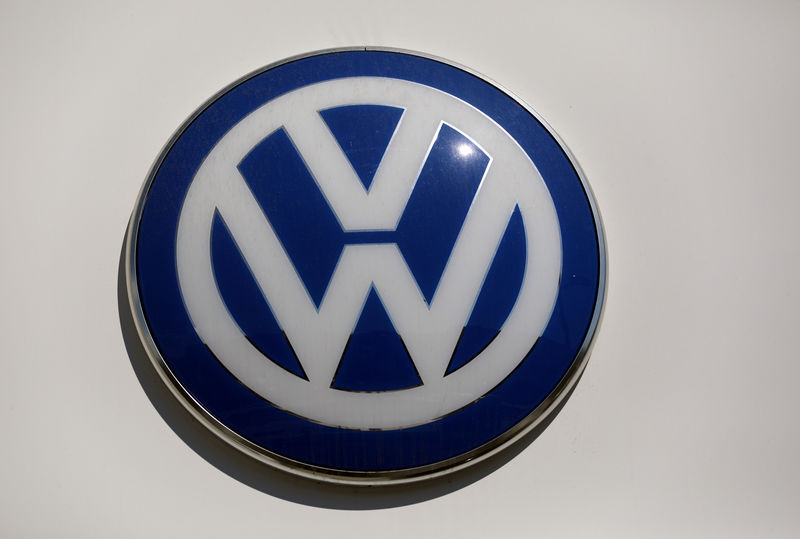FRANKFURT (Reuters) - Volkswagen (DE:VOWG_p) and FiatChrysler could face penalties of up to 1.83 billion euros (1.64 billion pounds) and 746 million euros respectively, if they fail to meet the European Union's emissions targets set for 2021, according to AlixPartners.
The study by the consulting firm, which was published on Wednesday, shows how hard it is for carmakers to meet European rules for cutting average fleet emissions for passenger cars to 95 grams of carbon dioxide per kilometre by 2021.
AlixPartners forecast the size of potential penalties based on the vehicle emissions levels reported by carmakers at the end of 2017. Since then, major carmakers have reduced carbon dioxide emissions through higher sales of electric and hybrid vehicles.
Volkswagen said it plans to comply with the European rules while FiatChrysler has said it will pursue the cheapest option for complying with the rules, a step which may include paying fines.
Volvo and Toyota are the only major carmaking groups which do not face penalties, and could sell their surplus emission credits to other carmakers, the study showed.
Volkswagen Group, faces the biggest fine because it is Europe's biggest carmaker by market share. To meet European Union emissions rules it plans to mass produce electric cars in 2020.
"If you build heavier cars and have a large market share of diesels you have some homework to do if you want to mitigate possible penalties," said Elmar Kades, Managing Director at AlixPartners.
"Customers are switching to petrol and this needs to be compensated with electrification and or hybridization."
In its Global Automotive Outlook study, AlixPartners said that car sales will stagnate or decline in the next three years, hitting the margins of suppliers and carmakers, particularly those balancing sales of electric and combustion engine cars.
Designing and building both combustion engine and fully electric cars simultaneously costs automakers $2.3 billion per platform per year, the study said.
"One of the most dramatic developments is that demand is stagnant or falling, while investments are at an all time high. To counter margin deterioration we see comprehensive cost cutting measures across the board," Kades said.
